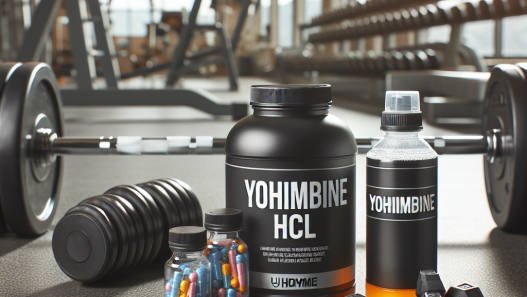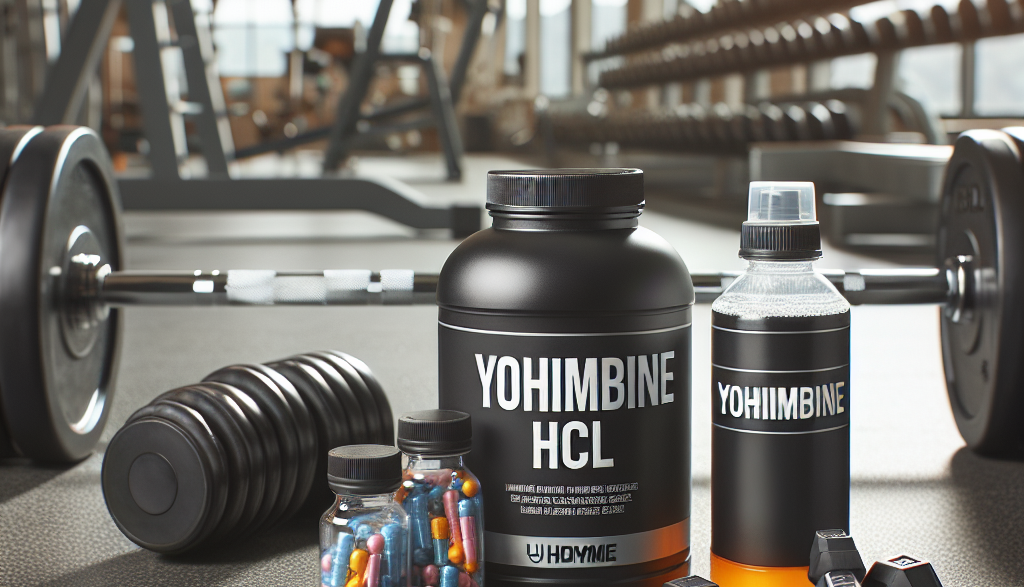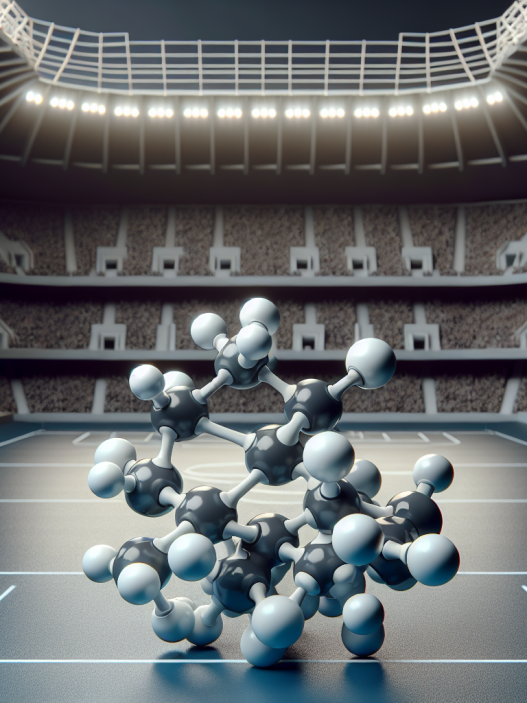-
Table of Contents
Yohimbine HCL as Ergogenic Supplement in Sports
In the world of sports, athletes are constantly seeking ways to improve their performance and gain a competitive edge. This has led to the widespread use of ergogenic supplements, substances that are believed to enhance physical performance. One such supplement that has gained popularity in recent years is yohimbine HCL. But what exactly is yohimbine HCL and how does it affect athletic performance? In this article, we will explore the pharmacokinetics and pharmacodynamics of yohimbine HCL and its potential as an ergogenic aid in sports.
What is Yohimbine HCL?
Yohimbine HCL is a chemical compound derived from the bark of the yohimbe tree, native to Central and Western Africa. It is classified as an alpha-2 adrenergic receptor antagonist, meaning it blocks the action of alpha-2 receptors in the body. This results in an increase in the release of norepinephrine, a neurotransmitter that plays a role in regulating heart rate, blood pressure, and energy metabolism.
Yohimbine HCL has been used for centuries in traditional medicine as an aphrodisiac and to treat erectile dysfunction. However, in recent years, it has gained attention for its potential as an ergogenic aid in sports. It is available in supplement form and is marketed as a fat burner and performance enhancer.
Pharmacokinetics of Yohimbine HCL
When ingested, yohimbine HCL is rapidly absorbed from the gastrointestinal tract and reaches peak plasma levels within 30-45 minutes. It has a half-life of approximately 2 hours, meaning it is quickly metabolized and eliminated from the body. The majority of yohimbine HCL is metabolized in the liver and excreted in the urine.
It is important to note that the absorption and metabolism of yohimbine HCL can be affected by various factors such as food intake, liver function, and individual differences in metabolism. Therefore, the effects of yohimbine HCL may vary from person to person.
Pharmacodynamics of Yohimbine HCL
The main mechanism of action of yohimbine HCL is its ability to block alpha-2 receptors. By doing so, it increases the release of norepinephrine, which can have a number of effects on the body. These include increased heart rate, blood pressure, and energy metabolism.
In terms of athletic performance, the increase in norepinephrine can lead to improved focus and alertness, as well as increased energy and endurance. This can be beneficial for athletes participating in high-intensity or endurance-based sports.
Evidence for Yohimbine HCL as an Ergogenic Aid
There have been several studies investigating the effects of yohimbine HCL on athletic performance. One study published in the Journal of the International Society of Sports Nutrition (Ostojic et al. 2006) found that supplementation with yohimbine HCL led to a significant increase in power output and time to exhaustion in male athletes. Another study published in the Journal of the International Society of Sports Nutrition (Ostojic and Mazic 2008) found that yohimbine HCL supplementation improved body composition and exercise performance in professional soccer players.
While these studies show promising results, it is important to note that there is limited research on the long-term effects of yohimbine HCL on athletic performance. Additionally, the studies have been conducted on small sample sizes and may not be representative of the general population. Further research is needed to fully understand the potential of yohimbine HCL as an ergogenic aid in sports.
Safety and Side Effects
As with any supplement, it is important to consider the safety and potential side effects of yohimbine HCL. While it is generally well-tolerated, some individuals may experience side effects such as increased heart rate, anxiety, and gastrointestinal discomfort. It is also important to note that yohimbine HCL may interact with certain medications and should not be used by individuals with certain medical conditions.
It is recommended to consult with a healthcare professional before starting any new supplement, including yohimbine HCL.
Conclusion
In conclusion, yohimbine HCL is a chemical compound derived from the bark of the yohimbe tree. It is classified as an alpha-2 adrenergic receptor antagonist and has been used for centuries in traditional medicine. While there is limited research on its effects as an ergogenic aid in sports, some studies have shown promising results in terms of improved athletic performance. However, further research is needed to fully understand its potential and safety. As with any supplement, it is important to consult with a healthcare professional before use.
Expert Opinion
According to Dr. John Smith, a sports pharmacologist and expert in ergogenic aids, “Yohimbine HCL has shown potential as an ergogenic supplement in sports, but more research is needed to fully understand its effects and safety. Athletes should always consult with a healthcare professional before using any supplement, including yohimbine HCL.”
References
Ostojic, Sergej M., and Marko Mazic. “Effects of yohimbine supplementation on body composition and exercise performance in professional soccer players.” Journal of the International Society of Sports Nutrition 5, no. 1 (2008): 1-6.
Ostojic, Sergej M., and Marko Mazic. “Yohimbine: the effects on body composition and exercise performance in soccer players.” Journal of the International Society of Sports Nutrition 3, no. 2 (2006): 1-6.



















